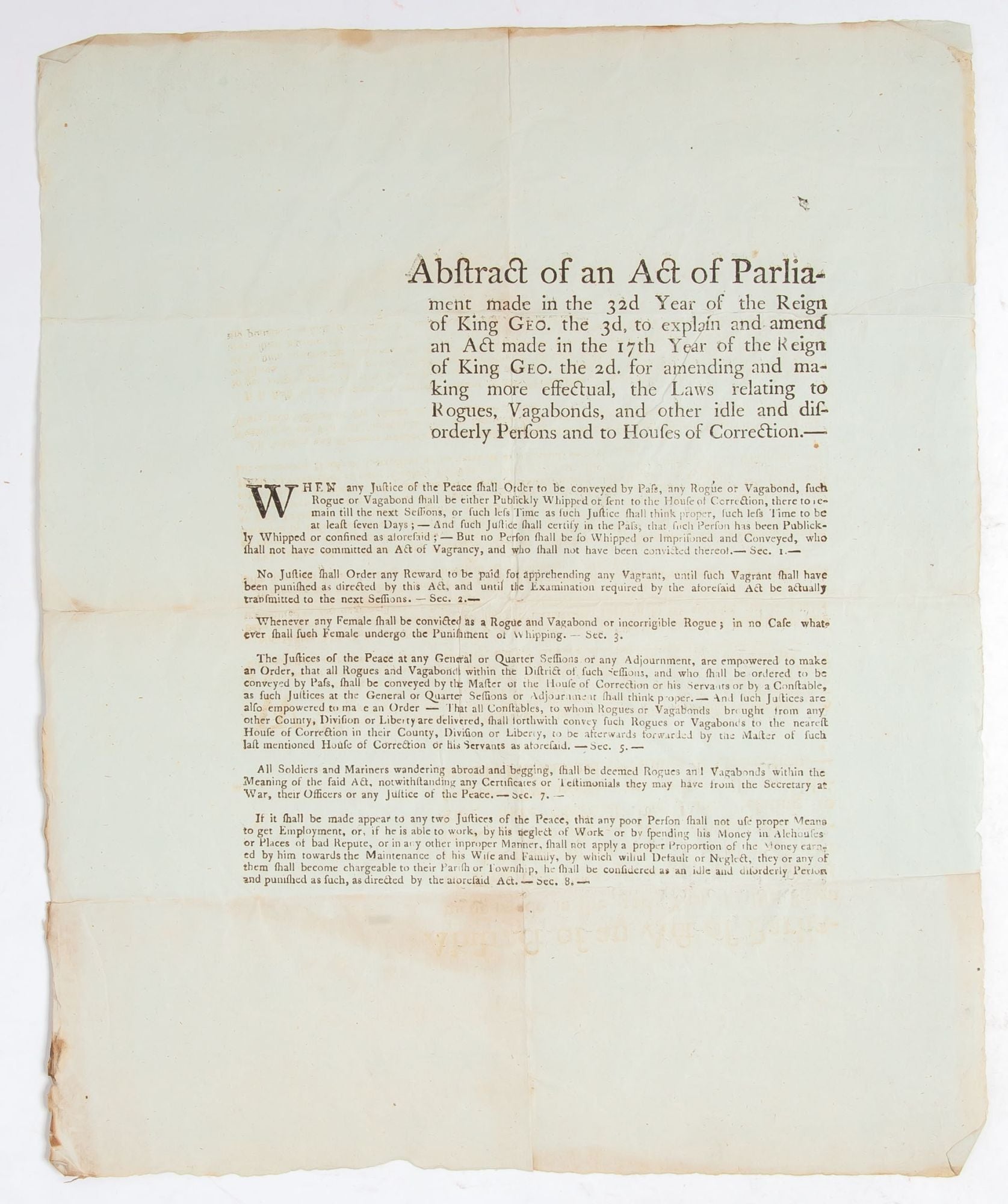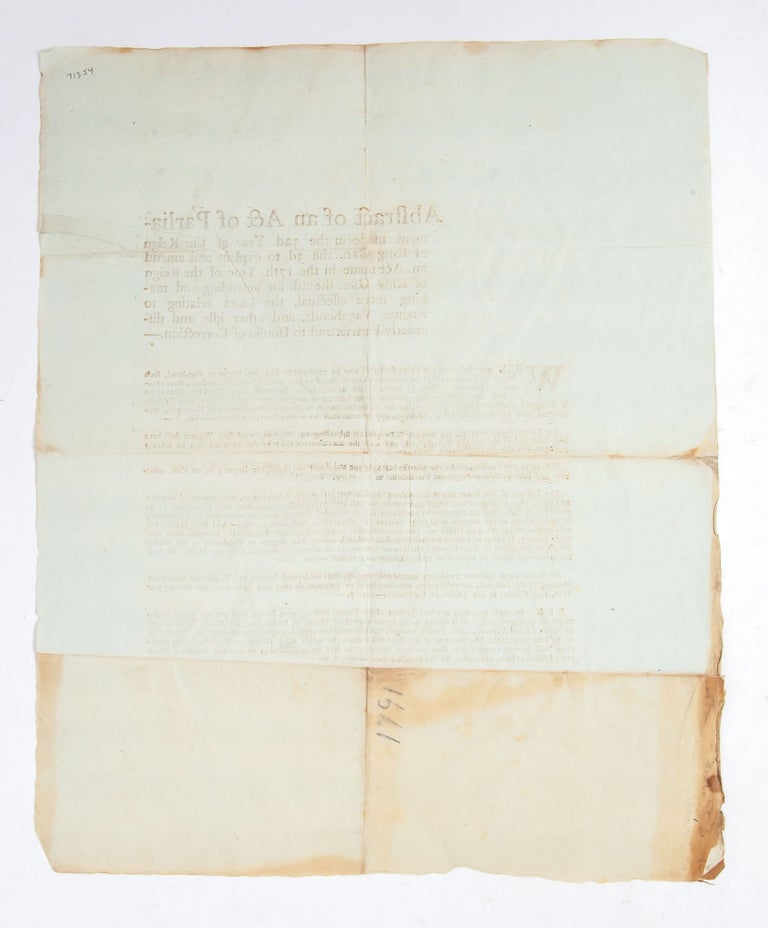Abstract of an Act of Parliament...making more effectual the Laws relating to Rogues, Vagabonds, and other idle and disorderly Persons and to Houses of Correction
[London]: [N.P.], [1791].


Abstract of an Act of Parliament...making more effectual the Laws relating to Rogues, Vagabonds, and other idle and disorderly Persons and to Houses of Correction
[London]: [N.P.], [1791]. First edition. Broadside measuring 15 x 12.25 inches and printed to recto. Some light chipping and toning to edges, particularly to lower quarter of sheet; short closed tear with amateur tape repair to verso along upper right foldline. Pencil notation "1791" to lower verso. In all, a well preserved piece which is unrecorded by ESTC, OCLC, or the British Library.
English Poor Laws went through several important shifts between the sixteenth century's decline in more traditional forms of church-based charitable assistance and the present revision of the late eighteenth century. "The dissolution of the monasteries in 1536-40, followed by the dissolution of religious guilds, fraternities, almshouses, and hospitals in 1545-49 destroyed much of the institutional fabric which had provided charity for the poor in the past" (Boyer). In the absence of these systems, local governments struggled to establish their own infrastructure for social welfare. "A compulsory system of poor relief was instituted during the reign of Elizabeth I" which provided some relief for "the elderly, widows, children, the sick, the disabled, the unemployed, or the underemployed" (Blaug); funded by a property tax called the "poor rare" parishes were to maintain three different groups at different rates ("able-bodied adults, children, and the elderly or non-able-bodied" (Boyer).
By the late eighteenth century, social welfare saw a decline in popularity among the wider citizenry; and a number of mechanisms were put into place to deter individuals and families from seeking or obtaining aid. In addition to the 1723 Workhouse Test Act, which "empowered parishes to deny relief to any applicant who refused to enter a workhouse," several acts were passed between 1791-1795 with work or residency requirements designed to "selectively keep out economically undesirable migrants such as single women, older workers, and men with large families" (Boyer). The Act of Parliament clarified in this abstract is such an example. By defining as "Rogue or Vagabond" any "poor Person [who] shall not use proper Means to get Work," any person who excessively spent funds "in Alehouses or Places of Bad Repute," or anyone "wandering abroad and begging," the Act criminalized a wide swath of the community. Those labeled Rogue or Vagabond would be subject to corporal punishment, fines, imprisonment, or removal from the parish (a notable exception to the corporal punishment was "any Female" who "in no Case whatsoever shall such undergo the Punishment of Whipping"). Thus, by policing the financial and physical lives of the impoverished, the 1791 Act gave the government the ability either to control impoverished peoples or deny them aid if they resisted and asserted autonomy. It further trapped a wide number of people within a cycle generational poverty. (Item #5160)

